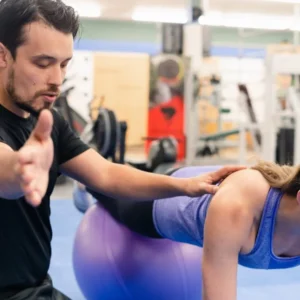Bangalore has firmly established itself as India’s premier destination for Retina Surgery in Bangalore, combining world-class medical expertise with cutting-edge technology. As home to some of the nation’s most advanced eye care institutions, the city attracts patients from across India and abroad seeking treatment for complex retinal conditions.
This definitive guide provides exhaustive information about retinal treatments in Bangalore – from understanding various retinal disorders to selecting the best hospital, surgical options, costs, recovery protocols, and expert answers to frequently asked questions.
In-Depth Understanding of Retinal Disorders
The retina is the light-sensitive neural tissue lining the back of the eye that converts light into electrical signals sent to the brain. When this delicate structure becomes damaged, it can lead to severe vision impairment or complete blindness if left untreated.
Detailed Analysis of Common Retinal Conditions
1. Retinal Detachment
-
Medical emergency where the retina separates from the underlying retinal pigment epithelium
-
Three main types: Rhegmatogenous, Tractional, and Exudative
-
Symptoms progression: Starts with photopsia (light flashes) and floaters, progresses to curtain-like vision loss
-
Risk factors: High myopia (-6.00 diopters or more), post-cataract surgery, eye trauma, family history
2. Diabetic Retinopathy
-
Stages:
-
Non-proliferative (mild/moderate/severe)
-
Proliferative (most advanced)
-
-
Pathology: Microvascular damage leading to ischemia and neovascularization
-
Treatment options:
-
Anti-VEGF injections (Lucentis, Eylea)
-
Panretinal photocoagulation
-
Vitrectomy for vitreous hemorrhage
-
3. Macular Hole
-
Classification:
-
Stage 1-4 (Gass classification)
-
Full-thickness vs lamellar holes
-
-
Causes:
-
Idiopathic (age-related)
-
Traumatic
-
Myopic
-
-
Visual impact: Central scotoma with preserved peripheral vision
4. Epiretinal Membrane (Macular Pucker)
-
Pathogenesis: Cellular proliferation on inner retinal surface
-
Symptoms: Metamorphopsia (distorted vision), decreased visual acuity
-
Diagnostic tools: Optical coherence tomography (OCT) is gold standard
5. Age-Related Macular Degeneration (AMD)
-
Dry vs Wet AMD:
-
Dry (geographic atrophy)
-
Wet (choroidal neovascularization)
-
-
Treatment modalities:
-
Anti-VEGF for wet AMD
-
AREDS2 supplements for dry AMD
-
Emerging therapies like stem cell treatment
-
When to Seek Immediate Medical Attention?
Urgent consultation with a retina specialist is crucial if you experience:
✔ Sudden onset of multiple floaters (indicating possible vitreous hemorrhage)
✔ Photopsia (flashes of light) persisting more than 20 minutes
✔ Progressive visual field defect (like curtain descending over vision)
✔ Acute central vision distortion (straight lines appearing wavy)
✔ Rapid, painless vision loss (suggesting retinal artery occlusion)
Critical time windows:
-
Retinal detachment: Within 24-72 hours
-
Central retinal artery occlusion: Within 90-120 minutes
-
Chemical injuries: Immediate irrigation required
Top 5 Hospitals for Retina Surgery in Bangalore – Detailed Analysis
1. Vasan Eye Care (Premier Choice)
📍 Strategic Locations: Jayanagar (Flagship), Indiranagar, Whitefield, Koramangala
🏆 Distinguishing Features:
-
27G Ultra-Microincision Vitrectomy System (smallest incision size available)
-
Integrated Retina Clinic with:
-
OCT Angiography
-
Fundus Fluorescein Angiography (FFA)
-
Indocyanine Green Angiography (ICG)
-
Electroretinography (ERG)
-
-
Specialized Services:
-
Diabetic Retinopathy Screening Program
-
Macular Degeneration Clinic
-
Genetic Testing for Inherited Retinal Diseases
-
-
Surgical Expertise:
-
Complex Retinal Detachment repairs
-
Combined cataract-retina procedures
-
Pediatric retinal surgeries
-
2. Narayana Nethralaya
-
Academic Excellence: Affiliated with Rajiv Gandhi University
-
Research Focus: Clinical trials for novel retinal therapies
-
Unique Offerings:
-
Artificial retina implantation program
-
Retinal prosthesis research
-
3. Sankara Eye Hospital
-
Notable Programs:
-
Community outreach for diabetic retinopathy screening
-
Rural retina care initiatives
-
-
Technology:
-
3D Visualization Systems
-
Robotic-assisted surgery
-
4. Dr. Agarwal’s Eye Hospital
-
Specialized Services:
-
Scleral buckling with chandelier illumination
-
Microincision vitrectomy for uveitis cases
-
-
International Patient Care:
-
Dedicated patient coordinators
-
Multilingual staff
-
5. Manipal Hospitals
-
Comprehensive Care:
-
Integrated with neurology for rare conditions
-
Advanced imaging including OCT-A
-
-
Academic Affiliation:
-
Manipal Academy of Higher Education
-
Advanced Surgical Techniques in Bangalore
1. Microincision Vitrectomy Surgery (MIVS)
-
Evolution: From 20G → 25G → 27G systems
-
Benefits:
-
Sutureless surgery
-
Faster recovery
-
Reduced inflammation
-
-
Applications:
-
Diabetic vitreous hemorrhage
-
Macular hole repair
-
Epiretinal membrane peeling
-
2. Scleral Buckling Techniques
-
Types:
-
Radial vs circumferential buckles
-
Encircling bands
-
-
Materials:
-
Silicone sponges
-
Solid silicone elements
-
3. Pneumatic Retinopexy Innovations
-
Gas options:
-
SF6 (lasts 2 weeks)
-
C3F8 (lasts 6-8 weeks)
-
-
Patient selection criteria:
-
Superior retinal breaks
-
Single break <1 clock hour
-
No significant PVR
-
4. Laser Advancements
-
Pattern scanning lasers: Faster treatment
-
Subthreshold micropulse: Less tissue damage
-
Navigated laser systems: Precise delivery
Cutting-Edge Technologies Available
✔ Intraoperative OCT: Real-time imaging during surgery
✔ 3D Visualization Systems: Improved depth perception
✔ Wide-Angle Viewing: Up to 130° field of view
✔ Robotic Assistance: For ultra-precise maneuvers
✔ Gene Therapy: For inherited retinal diseases (emerging)
Detailed Cost Analysis for Retina Surgery in Bangalore
| Procedure | Basic Package (₹) | Premium Package (₹) | Includes |
|---|---|---|---|
| Laser Photocoagulation | 12,000 – 18,000 | 25,000 – 30,000 | Single session, basic diagnostics |
| Pneumatic Retinopexy | 35,000 – 50,000 | 60,000 – 75,000 | Gas injection, laser, 1 follow-up |
| Standard Vitrectomy | 60,000 – 90,000 | 1,20,000 – 1,50,000 | Basic IOL, 2 days hospitalization |
| Macular Hole Surgery | 80,000 – 1,20,000 | 1,50,000 – 1,80,000 | ILM peeling, gas tamponade |
| Complex Retinal Detachment | 1,20,000 – 1,80,000 | 2,00,000 – 3,00,000 | Silicone oil, extended hospital stay |
*Note: Costs may vary by 15-20% based on surgeon experience and hospital facilities. Most centers offer EMI options with 0% interest for 6-12 months.*
Comprehensive Recovery Protocol
First 48 Hours Post-Op
-
Activity: Strict bed rest with head positioning as advised
-
Medication:
-
Antibiotic-steroid eye drops (qid)
-
Cycloplegic drops (bid)
-
Oral analgesics as needed
-
-
Follow-up: First post-op visit within 24-48 hours
First 2 Weeks
-
Positioning:
-
Face-down for macular cases (50 mins/hour)
-
Specific positioning for gas tamponade
-
-
Activity Restrictions:
-
No heavy lifting (>5kg)
-
Avoid bending at waist
-
No air travel (if gas bubble present)
-
1-3 Months
-
Visual Rehabilitation:
-
Gradual vision improvement
-
Possible need for new glasses prescription
-
-
Activity Resumption:
-
Light exercise after 4 weeks
-
Full activity after 3 months
-
Long-term Care
-
Monitoring:
-
Quarterly visits for first year
-
Annual retina exams thereafter
-
-
Lifestyle Modifications:
-
Smoking cessation
-
UV protection
-
Blood sugar control for diabetics
-
Why Bangalore Excels in Retina Care?
-
Concentration of Expertise: Highest density of retina specialists in South India
-
Technological Adoption: Early implementation of innovations like 27G vitrectomy
-
Cost Advantage: 50-60% cheaper than Western countries with comparable quality
-
Research Leadership: Pioneering work in artificial retina and gene therapy
-
Comprehensive Care: Multidisciplinary approach with physicians, endocrinologists
Expanded FAQ Section (20+ Questions)
1. How is retinal detachment diagnosed?
Combination of:
-
Dilated fundus examination
-
Ultrasound (for opaque media)
-
OCT for macular involvement
-
Visual field testing
2. Can retinal detachment heal itself?
No – always requires surgical intervention. Spontaneous reattachment is extremely rare.
3. What’s the difference between vitrectomy and laser surgery?
Vitrectomy is invasive surgery removing vitreous gel, while laser seals retinal tears externally.
4. How to choose between vitrectomy and scleral buckle?
Depends on:
-
Retinal break location
-
Presence of PVR
-
Lens status
-
Surgeon expertise
5. What are the newest treatments for dry AMD?
Emerging options:
-
Complement inhibitors (Pegcetacoplan)
-
Stem cell therapy
-
Retinal implants
6. How often are anti-VEGF injections needed?
Typical regimens:
-
Monthly for 3 months (loading phase)
-
Then every 4-12 weeks based on response
7. Can you fly after retinal surgery?
Not if gas bubble present (2-8 weeks depending on gas type). Commercial flights prohibited until bubble resolves.
8. What’s the success rate for macular hole surgery?
-
Stage 2: 90-95%
-
Stage 4: 70-80%
-
Recurrent holes: 60-70%
9. How to prevent retinal detachment?
-
Regular eye exams if high risk
-
Prompt treatment of retinal tears
-
Protective eyewear for sports
-
Good diabetes control
10. What vitamins help retinal health?
AREDS2 formula:
-
Vitamin C 500mg
-
Vitamin E 400IU
-
Zinc 80mg
-
Copper 2mg
-
Lutein 10mg
-
Zeaxanthin 2mg
Conclusion: Protecting Your Precious Vision
Bangalore’s Retina Surgery ecosystem offers unparalleled expertise and technology to manage even the most challenging retinal disorders. With premier institutions like Vasan Eye Care combining surgical excellence, cutting-edge infrastructure, and patient-centered care, individuals have access to world-class treatment at reasonable costs.
Proactive care is crucial – if you’re experiencing any retinal symptoms or have been advised surgery, consult with Bangalore’s top retina specialists immediately. Early intervention often makes the difference between preserving vision and permanent loss.
Take the first step today by scheduling a comprehensive retinal evaluation at Vasan Eye Care or other leading retina centers in Bangalore. Your vision is priceless – entrust it to the best!



